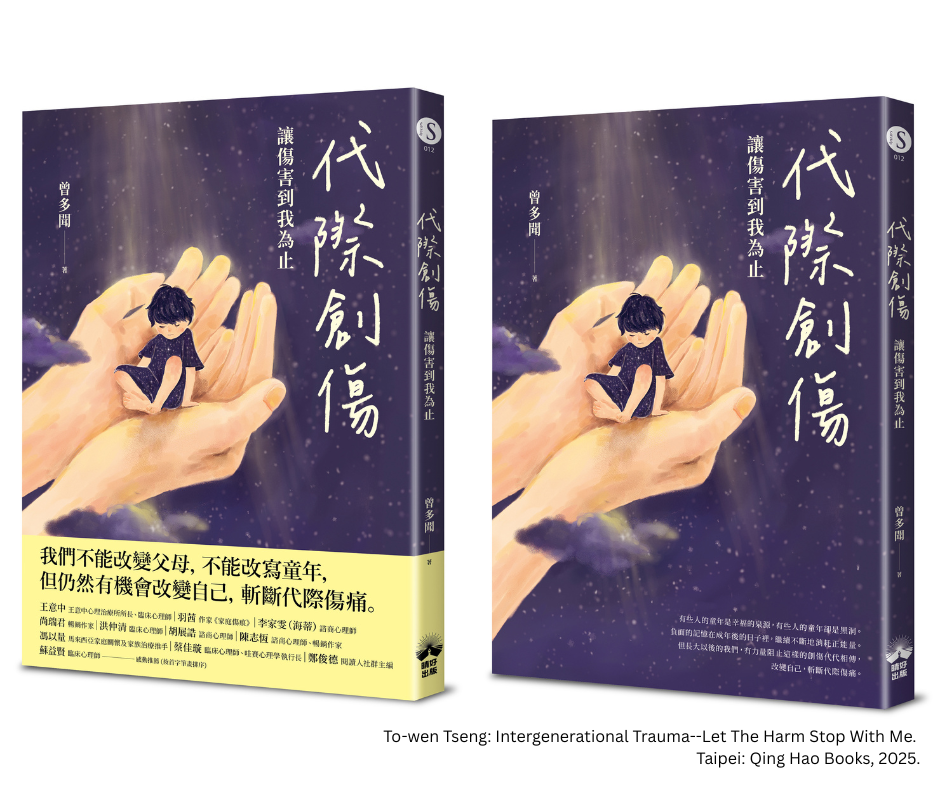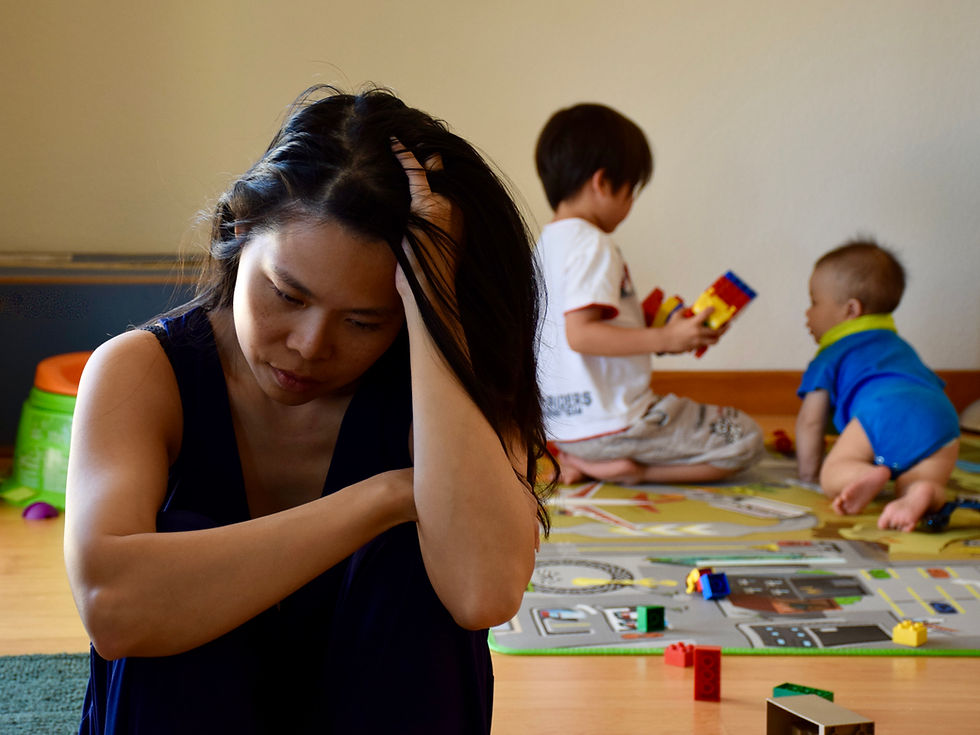This Blog is Now a Book!
- To-wen Tseng

- Apr 29, 2025
- 4 min read
Updated: May 30, 2025
Sometimes, you need to leave home to find yourself.

For some people, childhood is a source of happiness. But for others, it is a black hole -- the negative memories continue to consume positive energy well into adulthood. For some children, home is a safe haven. But for others, it is a shackle -- not only does it fail to shield them from the wind and rain, but it also oppresses those too powerless to resist.
I belong to the latter.
It is a blessing to have a happy childhood and grow up in a loving home. But even without those, one can still become strong, break free from the shackles, and find their own happiness. This is my greatest realization after deciding not to return to my parents' home.
Ten years ago, I began blogging about my journey of leaving home. Today, the blog becomes my fifth book, Intergenerational Trauma: Let the Harm Stop With Me, published by Taipei's Qing Hao Books on April 30th.
The process of leaving home was not easy. It took me twenty years to truly move on. When all was said and done, I realized that the greatest struggle wasn't escaping my parents' control and abuse, but overcoming my own fear and guilt.
Often, readers ask me, "How come you were still being beaten during your college years? Why didn't you just run away? College students should be strong enough to run away!"
Yes, college students are strong enough to run. But some things control people's actions more powerfully than strength.
Like fear. Ever since I could remember, I was told again and again that I am an idiot, a waste, and a useless thing that couldn't do anything without my parents. The worst part was -- I believed it. I truly feared I wouldn't survive outside of the "home," however terrible it was. I had also been beaten to a pulp many times for resisting. That made me afraid afraid that I would be punished even more severely if I were caught after running away.
And guilt. For five thousands years, Chinese/Taiwanese culture has instilled ideas like "there are no unloving parents under heaven," "the child is the one being beaten, but the mother suffers the pain," and "all parents beat their children for the children's own good." The beliefs made me think I was a bad child. That wanting to leave home was shameful. That even the thought of leaving home was unforgivable.
But once I took the first step, I found all of it could be overcome. All I needed was a little courage -- to think for myself and to challenge the "social norm." After leaving home and coming to the United States, I finally experienced what it felt like to be loved, respected, and live like a human being.
From there, it took me totally twenty years to heal, build my own family, attempt reconciliation with my parents, recognize the limits of effort, and decide to let go. My story doesn't have a traditionally happy ending -- estrangement from one's family is never ideal. But it's far less tragic than losing oneself. What matters is that I know I've done my best and made the right decision for me.
After deciding not to return to my parents' home, I still brought Little J and Baby J to visit them when we were in Taiwan -- but always at a restaurant. I haven't set foot in their home again. After giving up on reconciliation, I remained polite and chatted about weather or sports during our visits. I no longer tried to care about their lives or their feelings. That was actually quite relaxing.
After a recent dinner with my parents, just before we hit the road, my mother said to Little J, “Listen to me: learn Chinese well, and come back to Taiwan to visit me when you grow up. Your mom doesn’t have time to visit me, so you'll have to visit me on your own.”
As soon as we got in the car, Little J asked me in English: "Why did Grandma say you didn't have time to visit her? Doesn't she know that you did have time -- just didn't want to? Because she kept beating you up when you were a kid and never say sorry. Doesn't she know how to say sorry?"
I answered him in Chinese: "It's not that grandma doesn't know, it's that she doesn't want to face it. If a person doesn't want to change, no one can change them."
I cannot change my parents or rewrite my childhood. But I can change myself, overcome the pain, redeem myself, build a new family, and break the cycle of intergenerational trauma. Healing is not about waiting for others to apologize -- it's about awakening myself. I often joke with Dr. J that most people grow up at twenty, but I didn't grow up until I was forty. He always replied tactfully, "Of course--you look twenty now."
I know I don’t really look twenty, but I can say with confidence: I have never been stronger, physically or mentally. After forgiving my parents, there is no one in the world I cannot forgive. After overcoming my childhood trauma, there is nothing in the world that I cannot face.
Some posts included In this book:





Comments